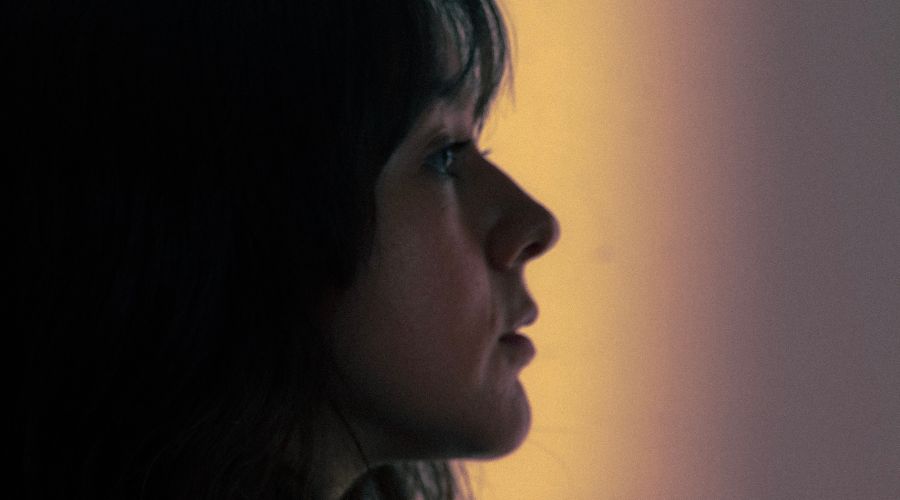Dr. Tiffany Moon on When High Achievement Leads to Burnout

As the daughter of Chinese immigrants, Dr. Tiffany Moon—an anesthesiologist, former Real Housewives of Dallas reality star, CEO, and author—was raised in a perfectionist environment. Her parents came to the United States on student visas, beating out “tens of thousands of other Chinese students” for a chance to study in America. “So that’s the scarcity mindset that they’re coming from. Their whole thing was to achieve and be the best or else you weren’t going to make it,” she explains to Dr. Will Cole on The Art of Being Well.
Hoping to live up to her parents’ expectations, Moon graduated high school at 15, finished college by 19, and graduated top of her class from medical school by 23. “I finished residency, got married, and had two kids by the time I was 30,” she tells Cole. High achievement was her baseline, she explains—until she started to feel like she was burning out.
Read on to learn how Dr. Moon knew she was experiencing burnout and how she got her life back on track.
What’s the difference between ‘tired’ and burnout?
“You want your anesthesiologist to be perfect. You don’t want a willy-nilly anesthesiologist who’s like, ‘Oh 10 milligrams, 15 milligrams, it’s fine,’” Moon jokes. “So I think my chosen profession also exacerbated my perfectionist and OCD tendencies. It’s not a ‘whatever’ kind of job, it’s very exacting,” Dr. Moon explains. After about five years of intense work and parenting, she began to notice that things were changing for the worse.
“To be honest, I used to think that whenever people used the term “burnout” they just couldn’t make it. They weren’t tough enough. I didn’t really believe in the concept of burnout until it happened to me.”
It wasn’t just that she was exhausted at work, explains Dr. Moon. The way she related to her job and her patients was changing for the worse. “I noticed that I was starting to lack empathy for my patients,” she explains. She was so worn out that she was starting to see her patients as “just another case and not as a human.”
If you’re working hard and loving what you do, that’s one thing, but if your whole relationship to your profession has changed, that might be your body signaling you to take a step back.
Apathy, a loss of passion, and a feeling of disconnection from the world and yourself can also be symptoms of burnout.
“I felt like I had lived my life according to a checklist,” explains Dr. Moon, citing college, med school, marriage, and kids as items she felt she needed to cross off the list. “I felt like if I checked all the things off the list, one day I would show someone my completed checklist and they’d be like, ‘Here’s joy, here’s happiness.’” But that didn’t happen, she says. Instead, she finished the checklist and thought, “Now what?”
Dr. Moon realized she needed to do the work of finding joy from within: “I need to fix this because I cannot keep going the rest of my career,” Dr. Moon remembers telling herself. So she sought help from a variety of sources—specifically a therapist and an executive coach. “So there were two people helping me,” she says.
How can a therapist help with burnout?
Choosing the right therapist, Dr. Moon says, is vital for unpacking your burnout journey. For Dr. Moon, it was important to find someone who understood her background. “I knew she had to be female. I wanted her to be a person of color, preferably an immigrant. So I was very specific in choosing my therapist.”
In Dr. Moon’s case, therapy helped her understand why she’d always felt the need to push herself so hard. “My therapist really helped me dissect the complicated feelings that I had around my childhood.”
Because her parents had left her in China in order to establish themselves in America, she lacked a close relationship with them. “From age three to six I didn’t know my mom and dad,” she explains. “Once in a while we’d get a letter in the mail with a picture of them in front of a Christmas tree and my grandparents would be like ‘Here are your parents in America,’ and I’d be like ‘That’s nice.’”
After being “abandoned” by her parents, she was uprooted once again at the age of six to go live with her parents in America. The rapid change eventually led to a fear around abandonment. “I never developed the ability to trust people. So the therapist that I worked with had to do a lot of unpacking around my childhood trauma and my insecure attachment style.”
Unpacking past issues can help you take control of your emotions, but don’t expect an instant change. Dr. Moon worked with her therapist for two years before noticing major changes.
“It’s not like a six-week thing, like ‘I’m going to go in for six sessions and she’s going to fix me!’ It does not work that way. The therapist helped me deal with a lot of the past and understand why I am the way I am, why I have so many walls up,” she explains. As she looked towards the future, Moon says working with an executive coach helped her figure out next steps.
Can executive coaching help with burnout?
Dr. Moon realized she didn’t want to work full time as an anesthesiologist anymore and needed to “diversify” her life. “Women came up to me at medical conferences all the time after I’d just given a talk about new anesthetic agents and techniques, but then they wanted to ask me about work-life balance,” she explains. That got her thinking about coaching other women in medicine.
“I wanted to start a coaching business. I wanted to do my own women’s leadership conference. I wanted to write a book one day. But I didn’t think I could do any of those things. I’m just a doctor, I don’t have any business background,” she says.
These “limiting beliefs” about herself were holding her back, until she found a coach that let her “borrow confidence” so that she could take the next steps.
‘Work-life balance’ is a misleading term
After you’ve done the work with your support team, be it a therapist, an executive coach, or both, be realistic about your expectations for work-life balance in the future. In fact, you might not want to think of it as “balance” at all, Dr. Moon recommends. Instead, reframe it as work-life management or work-life control.
“Balance implies that the two sides are even, and it ain’t so,” she says. “Some days I’m a great mom and the emails are going unread, and the business is running on its own. And some days I’m doing business stuff, I’m doing press, I’m working on my book.”
On a day-to-day basis, she explains, you’ll rarely have an even split between work and life. “The ‘balance’ comes at the end of the month when you’ve looked at your pie chart of ‘How am I using my time?'”
Find joy in the mundane
In Dr. Moon’s book, Joy Prescriptions, she writes that joy is the biggest antidote for burnout. How you find it is up to you.
“I think joy means different things to different people,” she says. “Some people are very spiritual and that’s a big component of their joy, some people love physical movement. My joy comes from making deep and meaningful connections with other humans.” One of the best ways Dr. Moon finds those connections is through laughter, she explains.
When it comes to her personal life, she’s working on “finding the funny” and not taking everything so seriously. She recommends the Mel Robbins let them theory. The technique says, “I refuse to give you power to annoy me, I will turn this into a funny situation instead.”
Burnout happens
If you feel apathetic, disconnected, and burnt out, you don’t have to stay that way. Whether you take Dr. Moon’s advice and work with a professional or try some of these techniques, there are solutions available to you. You have the power to fight the fire of burnout and bring joy to your life!
For Moon’s full conversation with Dr. Cole, listen to The Art of Being Well.




















Leave a Reply